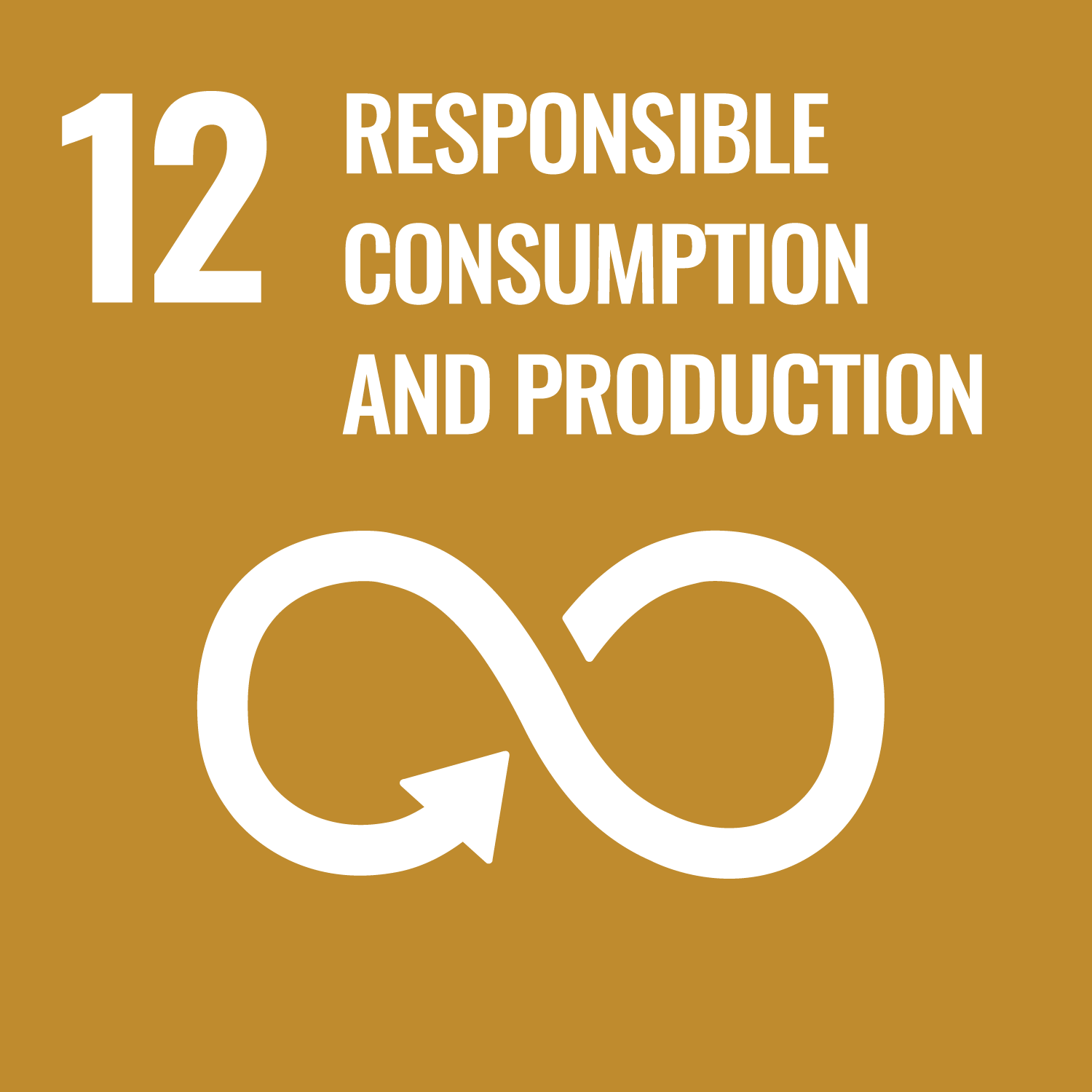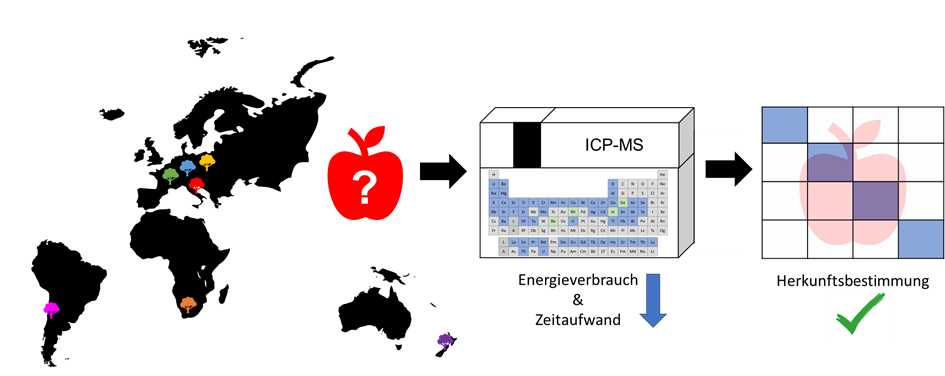Sustainability in research
Research group Prof. Dr. Markus Fischer


Food authentication goes green: Method optimization for determining the geographic origin of apples and apple juice using ICP-MS
Apples are among the most important fruits worldwide and are the most consumed fruit in Germany. Due to higher energy and labor costs, domestic apples and apple based products are more expensive and therefore offer an incentive for adulteration with foreign goods. In addition, imported apples have a higher CO2 footprint, which is an obstacle in times of climate change. Not only the transportation and storage, but also the analysis has an impact on the carbon footprint.
Inductively coupled plasma mass spectrometry (ICP-MS) is an analytical method for the analysis of the element profile. The element profile is a powerful tool for the determination of the geographical origin of plant-based foods.
In this study, 85 apple juice samples were analyzed for method optimization. In addition to determining the origin, the main focus was on reducing energy consumption during sample preparation. By adapting the sample preparation and eliminating the freeze-drying process, it energy consumption and the associated CO2 emissions were reduced by 97% per sample.
By applying the optimized method to a larger sample size (272 samples), a model for the differentiation of European and non-European apples with an accuracy of 90.9% ± 2.4% was developed. German samples could be distinguished from other countries with an accuracy of 83.2% ± 1.4%. The regional differentiation of the German samples (North vs. South) achieved an accuracy of 92.3% ± 5.4%.
In conclusion, a model for determining the origin of apples on a global, national and even regional level was developed, which simultaneously reduces the energy consumption of the analytical method itself.

